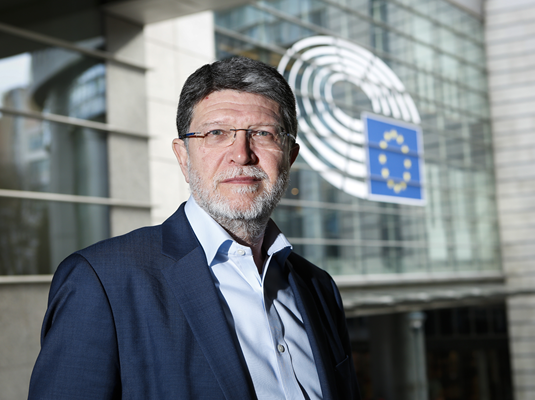The European Parliament has appointed Tonino Picula as rapporteur for the new European Union enlargement strategy. The Croatian representative from the ranks of the Socialists and Democrats is the head of the Working Group for the Western Balkans, the co-rapporteur for the IPA III financial mechanism, the rapporteur for Montenegro, and the coordinator of his parliamentary group for foreign affairs, among other duties. Picula's task will be to formulate a proposal for a new enlargement strategy, which should then be adopted by the European Parliament and then sent to the European Council, the European Commission, and the EU High Representative for Foreign Affairs and Security Policy.
"The proposal of the report entrusted to me by my colleagues clearly emphasizes the value of the enlargement policy as a strategic investment in the security and well-being of Europe, and that it has already greatly contributed to the establishment of peace in areas previously affected by war. Also, the initial proposal of the report recognizes the fact that I have been talking about for a long time and insisting on all the time, which is that enlargement is the most effective instrument of the EU's foreign policy and one of the most successful policies of the Union and that it continues to be a strategic investment in the stability and well-being of the European continent. It is also important for Croatia because as long as we do not have other EU members on all our borders, we will not be able to fully use all the possibilities of our membership", said Picula when he was appointed.
And enlargement is especially important today in the context of the Russian invasion of Ukraine, in order to give Ukraine and Moldova the prospect of possible membership, but also to give the necessary new impetus and momentum to the enlargement policy itself. The process of enlargement of the European Union needs, in addition to new impetus and momentum, continuity, consistency, credibility, and effectiveness, the draft Report states. The progress and security of the entire European Union depend on its ability to defend democracy inside and outside its borders, Picula points out, as well as human rights and a multilateral order based on clear rules.
"The geopolitical union, as announced at the beginning of this mandate by the President of the Commission acting Leyen, only in the geopolitically extremely demanding circumstances of the war on the border of the Union did it gain its real weight. It is necessary for the EU to maintain and strengthen its geostrategic importance and credibility, and this will only be possible if we become more integrated into the common foreign, security, and defense policy, and when we establish more effective decision-making procedures", he pointed out.
Speaking about relations with potential new members, Picula pointed out that it is necessary for EU members to start fulfilling their obligations towards candidates who meet the conditions set before them, to avoid using unresolved bilateral disputes for blackmail and blocking the accession process for those candidates, as well as to strategically communicate the benefits of enlargement, both in candidate countries and in the countries already in the EU.
In the draft report, Picula proposes to speed up the integration of countries that show a strategic orientation and commitment to the reforms necessary for EU membership, as well as to finally set clearer, more transparent, and consistent performance criteria for them, and to improve the measurement of progress while ensuring constant political and technical support during the entire accession process. Furthermore, to strengthen solidarity and transitional political and economic incentives for acceding countries, providing that the intermediate steps of integration do not replace but facilitate the ultimate goal of full EU membership.
Special attention in the draft is also devoted to our neighborhood, in accordance with Picula's strategic narrative about the importance of Croatia, because it has members of the Union at all borders. It is demanded that the achievements of the countries of the Western Balkans be recognized by opening accession negotiations with Albania and North Macedonia, which have long been waiting for the liberalization of the visa regime for Kosovo without delay.
It is necessary, Picula concludes, for the EU to help Bosnia and Herzegovina to obtain candidate status as soon as possible, as well as to encourage the acceleration of the accession process of Montenegro as the most advanced candidate country.


